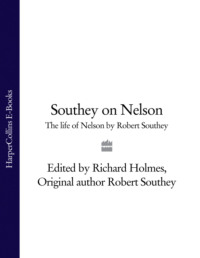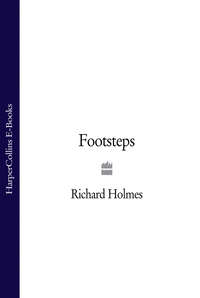
Полная версия
The Age of Wonder: How the Romantic Generation Discovered the Beauty and Terror of Science
21 May. Sunday, Divine service performed, at which was present Oborea, Otheothea, Obadee, &c. all behav’d very decently. After dinner Obadee, who had been for some time absent, returnd to the fort. Oborea desired he might not be let in, his countenance was however so melancholy that we could not but admit him. He looked most piteously at Oborea, she most disdainfully at him. She seems to us to act in the character of a Ninon d’Enclos who, satiated with her lover, resolves to change him at all events. The more so as I am offered, if I please, to supply his place! But I am at present otherwise engag’d; indeed was I free as air, her Majesties person is not the most desireable.
Other mishaps ensued towards the end of the month. Banks, Cook and Solander had decided on an expedition to explore the western end of the bay, and to bargain for some wild pigs rumoured to be held by the local chieftain, Dootah. Banks was followed solicitously up the coast by queen Oborea and her entourage in their large and comfortable outrigger canoes. When the expedition was benighted in chief Dootah’s village (no accommodation being offered), Banks agreed to separate from the others and sleep in the queen’s well-appointed canoe, which had a cabin constructed between the floats.
As he explained in his journal, he and the queen had naturally removed all their clothes. ‘We went to bed early as is the custom here: I stripped myself for the greater convenience of sleeping as the night was hot. Oborea insisted that my cloths should be put into her custody, otherwise she said they would certainly be stolen. I readily submitted and laid down to sleep with all imaginable tranquility.’
The next morning Banks awoke to find almost all his kit missing-his handsome nankeen jacket with its fine brass buttons, his breeches, his waistcoat, his much-prized pistols and even his powder-horn. All had been-most unfortunately, murmured the queen-stolen in the night. After unavailing searches and appeals, Banks was faced by the prospect of a shame-faced retreat to Fort Venus with neither the promised pigs, nor his precious pistols, or even most of his clothes. Queen Oborea seems to have enacted a form of revenge. She supplied Banks with Tahitian shawls and blankets to replace his European clothes, and bade him farewell. For once, Banks was distinctly unamused: ‘I made a motley apearance, my dress being half English and half Indian. Dootahah soon after made his apearance; I pressed him to recover my Jacket but neither he nor Oborea would take the least step towards it so that I am almost inclind to believe that they acted principals in the theft.’36
Any resentful feelings were swept aside the following afternoon. Rounding the tip of the bay, they looked out to sea and saw something wholly unexpected and ‘truly surprising’. This was the astonishing and never-to-be-forgotten sight, far out on the unprotected edge of the lagoon, of a group of dark Tahitian heads bobbing amidst the enormous dark-blue Pacific waves. At first Banks thought they had been flung out of their canoes and were drowning. Then he realised that the Tahitians were surfing.
No European had ever witnessed-or at least recorded-this strange, extreme and quintessentially South Seas sport before. It left Banks amazed by the courage and dexterity of the Tahitian surfers, and the beauty and nonchalant grace with which they mastered the huge and terrifying Pacific rollers: ‘It was in a place where the shore was not guarded by a reef as is usualy the case, consequently a high surf fell upon the shore. A more dreadfull one I have not often seen: no European boat could have landed in it and I think no Europaean who had by any means got into [it] could possibly have saved his life, as the shore was coverd with pebbles and large stones. In the midst of these breakers 10 or 12 Indians were swimming.’
Here the power of wild nature was not tamed, but was harnessed by human beings; and they evidently revelled in it. The Tahitians had developed what were clearly surfboards, constructed out of the smooth, curved ends of old canoes. They were scornful of all danger, and exultant in their physical skills. ‘Whenever a surf broke near them [they] dived under it with infinite ease, rising up on the other side; but their chief amusement was carried on by the stern of an old canoe. With this before them they swam out as far as the outermost breach, then one or two would get into it and opposing the blunt end to the breaking wave were hurried in with incredible swiftness. Sometimes they were carried almost ashore, but generally the wave broke over them before they were half way. In which case the[y] dived and quickly rose on the other side with the canoe in their hands, which was towed out again and the same method repeated.’
Most extraordinary of all, this perilous activity evidently had absolutely no practical purpose or possible use. It was nothing to do with fishing, or transport, or navigation. The Tahitians did it for the sheer, inexhaustible delight of the thing. It was a complete Paradise sport: ‘We stood admiring this very wonderfull scene for full half an hour, in which time no one of the actors attempted to come ashore but all seemed most highly entertained with their strange diversion.’37
Some Tahitian ceremonies were carefully organised, and suitable for all the Endeavour’s crew, such as the afternoon of naked wrestling organised by queen Oborea. Others were less official. One morning a number of young women arrived by canoe, and were offered to Banks in a curiously provoking ceremony
12 May. While I sat trading in the boat at the door of the fort a double Canoe came with several women and one man under the awning. The Indians round me made signs that I should go out and meet them…Tupia who stood by me acted as my deputy in receiving them…Another man then came forward having in his arms a large bundle of cloth. This he opend out and spread it piece by piece on the ground between the women and me. It consisted of nine pieces. Three were first laid. The foremost of the women, who seemed to be the principal, then stepped upon them and quickly unveiling all her charms gave me a most convenient opportunity of admiring them by turning herself gradualy round.
Further pieces of cloth were then laid out in front of Banks, and the woman stepped closer and repeated her slow, smiling, naked gyrations. No awkwardness seems to have been felt on either side. ‘She then once more displayed her naked beauties and immediately marchd up to me, a man following her and doubling up the cloth as he came forwards which she immediately made me understand was intended as a present for me. I took her by the hand and led her to the tents acompanied by another woman her friend. To both of them I made presents but could not prevail upon them to stay more than an hour.’
This is clearly a seduction scene, and the unnamed Tahitian man is bartering the woman. Yet there is no gloating in Banks’s entry; nor is it clear whether he took advantage of this frank proposal. Cook also witnessed this scene, and remarked that the young woman acted ‘with as much Innocency as one could possibly conceive’.38
By mid-June Banks was increasingly prepared to abandon European inhibitions, including his clothes. He noted frequently, ‘I lay in the woods last night as I very often did,’ by which one can understand he was probably with Otheothea. On 10 June his journal records how he stripped off, had his body covered with charcoal and white wood ash, and danced ceremonially with a witch doctor (Heiva). He was joined by two naked women and a boy, and together they danced through the length of the village, past the gate of Fort Venus, and along the shore.
It must have been an extraordinary sight, the expedition’s chief botanist whirling past the marine guards in the sunlight. But this Tahitian ceremony was not at all what it might have appeared to uninstructed European eyes. It was not an erotic rite, but a dance of ritual mourning. Banks and the young women were taking the part of ancestral ghosts (Ninevehs). ‘Tubourai was the Heiva, the three others and myself were the Nineveh. He put on his dress, most Fantastical tho not unbecoming…I was next prepard by stripping off my European cloths and putting me on a small strip of cloth round my waist, the only garment I was allowed to have, but I had no pretensions to be ashamed of my nakedness for neither of the women were a bit more coverd than myself. They then began to smut me and themselves with charcoal and water, the Indian boy was compleatly black, the women and myself as low as our shoulders. We then set out. Tubourai began by praying twice, once near the Corps again near his own house…To the fort then we went to the surprize of our freinds and affright of the Indians who were there, for they every where fly before the Heiva like sheep before a wolf.’ The dancing continued along the shore, and went on for the rest of the afternoon, ‘After which we repaird home, the Heiva undressed and we went into the river and scrubbed one another till it was dark before the blacking would come off.’39
After eight weeks it became clear that many other officers were not integrating so well into the Tahitian way of life. One of them committed an elementary error by foolishly violating a religious taboo: ‘Mr Monkhouse our surgeon met to day with an insult from an Indian, the first that has been met with by any of us. He was pulling a flower from a tree which grew on a burying ground and consequently was I suppose sacred, when an Indian came behind him and struck him; he seiz’d hold of him and attempted to beat him, but was prevented by two more who coming up seized hold of his hair and rescued their companion after which they all ran away.’40
Even Captain Cook managed to create an unnecessary crisis when it was discovered that a metal fire-rake had been stolen from the fort. Determined to set an example, he impounded a score of native canoes. When the rake was swiftly returned, Cook then demanded that all other implements stolen from the camp in the last month should also be restored before he would return the canoes. It was quickly clear to Banks that Cook had here overplayed his hand with the Tahitians. The situation grew more complicated when it was learned that the canoes actually belonged to another group of islanders, who were bringing much-needed food to their relatives. They had no previous connection with the British, and were obviously not responsible for any of the thefts.
The aggrieved Tahitians appealed directly to Banks, rather than to Cook, over this blatant injustice. ‘Great application was made to me in my return that some of these might be released.’ For the first time Banks appeared openly critical of Cook in his journal: ‘I confess had I taken a step so violent I would have seized either the persons of the people who had stolen from us, most of whoom we either knew or shrewdly suspected, or their goods at least instead of those of people who are intirely unconcernd in the affair and have not probably interest enough with their superiors (to whoom all valuable things are carried) to procure the restoration demanded.’41
For several days all trading ceased, and the fish in the sequestered canoes began to rot, filling the fort with an ominous smell. Then one of the duty officers compounded their difficulties by committing another needless offence. Taking a party of sailors out to collect ballast stone for the Endeavour, he promptly began ‘pulling down’ a Tahitian burying ground. Once again the Tahitian appeal was made directly to Banks: ‘To this the Indians objected much and [a] messenger came to the tents saying that they would not suffer it. I went with the 2nd Lieutenant to the place.’ Banks, in his diplomatic role, eventually managed to soothe both parties, had the burying ground restored, and found a nearby riverbed where the sailors ‘gatherd stones very Easily without a possibility of offending anybody’.42
The issue of the impounded canoes remained, however, and suggested hostile attitudes on both sides: ‘The fish in the Canoes stink most immoderately so as in some winds to render our situation in the tents rather disagreable…The market has been totaly stopped ever since the boats were seized, nothing being offerd to sale but a few apples; our freinds however are liberal in presents so that we make a shift to live without expending our bread.’43
Queen Oborea and Banks’s flame Otheothea reappeared at the fort, though initially Banks thought it wiser for them to sleep outside in their canoes, and they were ‘rather out of humour’.44 The crisis was only gradually defused, as Cook allowed the canoes to be taken back three or four at a time, in return for small peace offerings. One unexpected development was that Oborea’s ex-husband, known as Oamo, put in an appearance to plead for the release of the boats. To everyone’s surprise, Oamo behaved very politely towards his ex-wife, and he made the most favourable impression on Banks. He showed himself to be a ‘very sensible man by the shrewd questions he asks about England its manners and customs &c.’45 But the general issue of theft and restitution was never really resolved, and relations with the Tahitians were less relaxed in the last month of the expedition’s stay. Chief Dootah completely withdrew from the Europeans, claiming he had been frightened by Banks shooting for wild duck.
Food remained a source of mutual interest, and one remarkable culinary event featured a dog, which the priest Tupia killed, dressed and roasted, while Banks carefully took down the recipe. Most of the sailors were repelled, but Banks declared the results to be delicious. ‘A most excellent dish he made for us who were not much prejudiced against any species of food. I cannot however promise that an European dog would eat as well, as these scarce in their lives touch animal food, Cocoa nut kernel, Bread fruit, yams &c, being what their masters can best afford to give them and what indeed from custom I suppose they preferr to any kind of food.’
Banks was also more at odds than previously with his naval companions, and there was some kind of quarrel with the insensitive surgeon Monkhouse. Banks tactfully omitted this from his journal, but young Sydney Parkinson recorded a confrontation between the two, and thought it arose over Monkhouse propositioning Otheothea. Several of Oborea’s Tahitian girls had arrived at Banks’s tent ‘very earnest in getting themselves husbands’. They behaved ‘very agreeable until bedtime, and determined to lie in Mr Banks’s tent, which they accordingly did, till the Surgeon having some words with one of them…he insisted she should not sleep there, and thrust her out’. Otheothea was then heard crying for some time in the tent. Parkinson noted dramatically: ‘Mr Monkhouse and Mr Banks came to an eclaircisement some time after; had very high words and I expected they would have decided it by a duel, which, however, they prudently avoided.’ Oborea and her retinue then left in their canoes, and would not return to the camp. ‘But Mr Banks went and staid with them all night.’46
It was probably no coincidence that Cook now decided that he would take his botanist off on a separate expedition. This was planned as a circumnavigation of the entire island in the Endeavour’s small sailing boat. Its official naval objective was to chart all possible harbours, and discover any signs of previous European landings-notably French or (as it was supposed) Spanish. For Banks, however, it was a glorious scientific field expedition, and a tantalising extension of his new anthropological investigations.
Starting at Matavi Bay in the north of the island, the circumnavigation took six days. They set out with a small crew and a handful of marines at 3 a.m. on 26 June, heading eastwards. There was considerable uncertainty about their reception once they passed beyond the territory of Matavi Bay, where Oborea and Dootah had influence. One of their guides said that ‘people not subject to Dootah’ would kill them. Accordingly they adopted a cautious mode of advance. Banks and Cook travelled mostly on foot along the shoreline, while the pinnace, its marines armed with loaded muskets, was rowed just offshore, keeping pace and overseeing their progress. A number of native canoes followed them.
‘Banks as usual explored, botanized, conversed,’ noted Cook with a smile.47 Indeed he was soon plunging inland and out of sight, claiming to be in search of specimens, waving a large butterfly net as his preferred weapon of defence. Banks thought nothing of foraging by himself ashore, once disappearing at dusk to hunt for provisions. He shot a duck and two curlews, then pressed on deeper inland. ‘I went into the woods, it was quite dark so that neither people nor victuals could I find except one house where I was furnishd with fire, a breadfruit and a half, and a few ahees [nuts].’ That night he slept under the awning of a native canoe.
Some discoveries were reassuring. In one village they found an English goose and a turkey cock which had been left behind by the Dolphin’s crew two years previously. ‘Both of them immensely fat and as tame as possible, following the Indians every where who seemed immensely fond of them.’ Other sights were less so. In a longhouse in this neighbourhood Banks spotted a rather ominous wall decoration. Proudly mounted on a semi-circular board at the end of the hut were a collection of human bones. Banks carefully inspected them-they were all under-jaw bones-no less than fifteen in all: ‘They appeard quite fresh, not one at all damaged even by the loss of a Tooth.’ These were evidently war trophies, and even perhaps signs of cannibalism. Banks enquired boldly, but could get no reply. ‘I asked many questions about them but the people would not attend at all to me and either did not or would not understand either words or signs upon that subject.’48 Later he learned they had been ‘carried away as trophies and are used by the Indians here in exactly the same manner as the North Americans do scalps’.49
Some receptions were welcoming, but deceptive. ‘Many Canoes came off to meet us and in them some very handsome women who by their behaviour seemed to be sent out to entice us to come ashore, which we most readily did.’ They were received in a very friendly manner by Wiverou, who was chief of the district. A splendid feast was prepared, accommodation offered, and Banks confidently paid court to the women, ‘hoping to get a snug lodging by that means, as I had often done’. This is a revealing admission, and as it turned out it was wholly unjustified. As the evening drew on, and the women found Banks more importuning, ‘they dropped off one by one’. He ruefully remarked that at last he found himself in the position of being ‘jilted 5 or 6 times, and obliged to seek out for a lodging myself’. He slept alone in a hut, naked as was now his custom, except for a piece of Tahitian cloth thrown over his waist. For once he implies that he felt himself to be the outcast, and this rejection evidently gave him pause for thought.
Indeed, for all the apparent hospitality, their situation always remained surprisingly uncertain away from Fort Venus and the guns of the Endeavour. It could easily become alarming. Banks noted a tense moment on the third morning: ‘About 5 O’Clock our sentry awaked us with the alarming intelligence of the boat being missing. He had he said seen her about 1/2 an hour before at her grapling which was about 50 yards from the shore, but that on hearing the noise of Oars he looked out again and could see nothing of her. We started up and made all possible haste to the waterside. The morn was fine and starlight but no boat in sight. Our situation was now sufficiently disagreable: the Indians had probably attacked her first and finding the people asleep easily carried her, in which case they would not fail to attack us very soon, who were 4 in number armed with one musquet and cartouch box and two pocket pistols without a spare ball or charge of powder for them.’
For fifteen minutes the little party stood alone on the Tahitian beach, suddenly very conscious that they were white Europeans, isolated and ill-armed, on the remote beach of an island that did not belong to them. They watched the sun come up, and waited to be massacred. Then, to their immense relief, the pinnace reappeared around the point of the bay. She had simply slipped her mooring and drifted out to sea while her crew slept. They told themselves that the murderous party of attacking Tahitians had been a figment of their European fears.50
Other experiences were unsettling in a different way. On their last day they discovered an enormous stone ‘marai’ or funeral monument, shaped like a pyramid, some forty-four feet high and nearly 300 feet wide, with steps of superbly polished white coral down both sides. This, the ‘masterpiece’ of Tahitian architecture on the island, was unsettling to Banks because its construction seemed technically inexplicable. ‘It is almost beyond belief that Indians could raise so large a structure without the assistance of Iron tools to shape their stones or mortar to join them.’
Not far away was another mystery: a huge wicker man constructed of basketwork, evidently for some obscure sacrificial rite. ‘The whole was neatly coverd with feathers, white to represent skin and black to represent hair and tattow. On the head were three protuberances which we should have calld horns but the Indians calld them tata ete, little men. The image was calld by them Maúwe; they said it was the only one of the kind in Otahite and readily attempted to explain its use. But their language was totaly unintelligible and seemed to referr to some customs to which we are perfect strangers.’
By the time of their return to Fort Venus on 1 July, Cook had completed a beautiful and lucid chart of the island, the figure of eight with its ‘marshy isthmus’ at the join, which would serve European mariners for generations to come, a model of clarity and accuracy. Banks had hugely increased his supply of botanical specimens, and his knowledge of the fruit and animal resources of the island. But the human mystery of Tahiti had deepened. Its history, customs, religious practices, sexual rites all challenged European understanding, and demanded a new science of explanation.
One of the most puzzling and disturbing of all the ceremonies that Banks witnessed was the tattooing of a young girl’s buttocks. Tattooing was universal in Tahiti, and its function among young male warriors was self-evident. Complex patterns were worked across the legs, the upper torso, on the fingers and ankles, and around the loins: proof of a young man’s courage, and also of his place in the social hierarchy. The skin was pierced with a block of sharpened wooden pins, and impregnated with a purple-black vegetable dye mixed with coconut oil. The operation was long and exquisitely painful, usually performed in stages over several months, and was itself a form of male initiation rite.
Banks could understand all this very well. What he could not understand was why women were forced to undergo it also, moreover at a cruelly young age. Was it a form of sexual initiation? Or purely decorative? Or a form of tribal identity marking? Tahitian women decorated themselves with flowers, and wore beautiful mother-of-pearl earrings, of which Banks made an entire collection. But they used very little other decorations or jewellery.
5 July 1769. This morn I saw the operation of Tattowing the buttocks performed upon a girl of about 12 years old. It proved as I have always suspected a most painfull one. It was done with a large instrument about 2 inches long containing about 30 teeth, every stroke of this hundreds of which were made in a minute drew blood. The patient bore this for about 1/4 of an hour with most stoical resolution; by that time however the pain began to operate too stron[g]ly to be peacably endured. She began to complain and soon burst out into loud lamentations and would fain have persuaded the operator to cease. She was however held down by two women who sometimes scolded, sometimes beat, and at others coaxed her.
Banks became more and more restless as this operation proceeded. ‘I was setting in the adjacent house with Tomio for an hour, all which time it lasted and was not finishd when I went away, tho very near. This was one side only of her buttocks for the other had been done some time before. The arches upon the loins upon which they value themselves much were not yet done, the doing of which they told caused more pain than what I had seen.’









